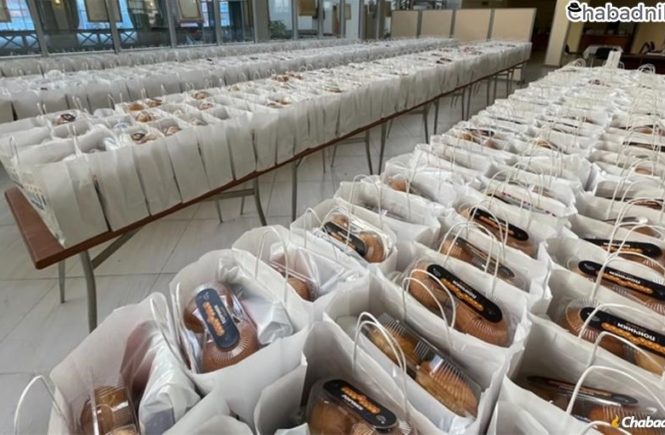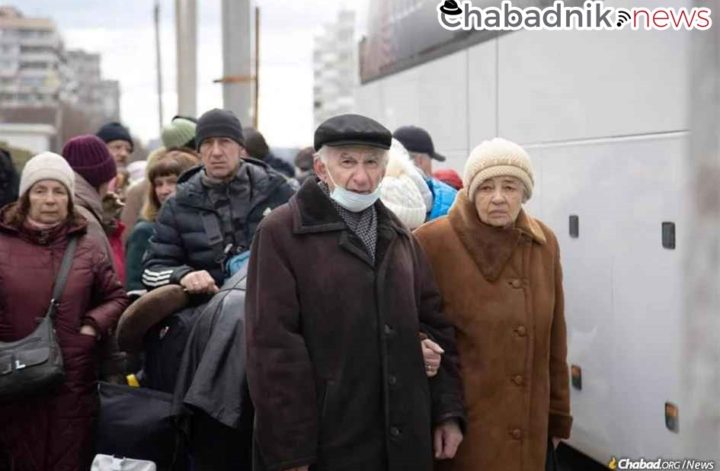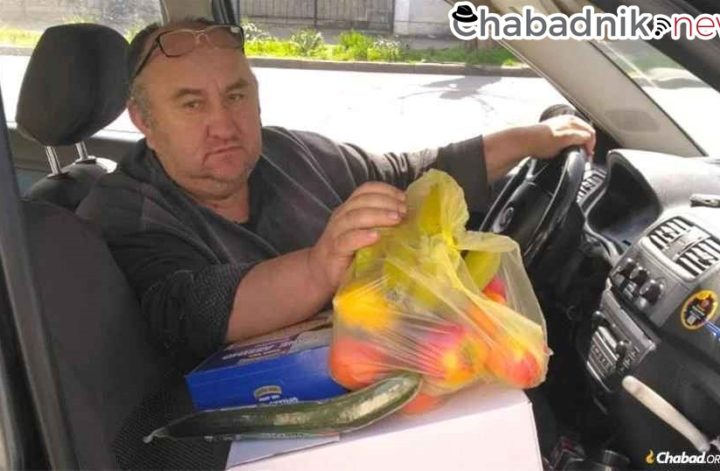Organizations step in as pandemic leaves financial victims everywhere

For Jews across the world, Hanukkah is a joyous time to spend with family and friends, gathering around the warm glow of the candles as boisterous children run around the house consuming inordinate amounts of treats with the adults clucking in mock disapproval.
But for others not so fortunate, visions of dishes heaped with plentiful latkes and doughnuts are but a dream this year. With a pandemic that has shuttered businesses and decimated employment, the specter of a holiday without basic necessities has become a frightening reality for an increasing number of people across the globe, many of whom have never experienced hunger or food insecurity of any kind.
To alleviate some of this pressure, major Chabad-Lubavitch social service organizations worldwide have made tremendous efforts before and duringHannukah to provide basic staples to families. In many places around the world, they are being joined by smaller efforts locally. It is an effort that will continue after the holiday as well.
The sprawling Chabad campus at the Federation of Jewish Communities (FJC) of Russia in Moscow is one example of such efforts. On an average day, the “Chesed Center” inside the complex is buzzing, and during the coronavirus pandemic, activities have only intensified.
In advance of the holiday, food packages with the basics to make it through the week were prepared and sent out to hundreds of families throughout the city.
Rabbi Yaakov Klein runs a Chabad House for English speakers in the city center, servicing the specific needs of a foreign-language community. But as the coronavirus swept through the country and placed the city into quarantine like so many others around the world, Klein found himself being called upon by local residents.

“There was a fellow from Ukraine who got stuck here in Moscow during the pandemic and without any source of income was in a really dire situation,” he told Chabad.org. “The food packages he received has been a literal lifeline for him.”
They are part of a larger effort conducted by Chabad in Moscow. As the central headquarters for the entire Chabad operation in the gargantuan country, the scale of their activity is enormous. For Chanukah, 30,000 packages were prepared and distributed to the hundreds of Chabad-Lubavitch emissaries in every part of the country. Individual emissaries canvassed their own communities with volunteers, giving out these holiday packages of a menorah, Chanukah gelt (the chocolate kind and real money), as well as other small goodies and holiday reading material to residents everywhere.
In Israel, a centuries-old charity with modern tools
The pandemic has also left its financial mark in Israel, and as the oldest continuously operating charity in Israel, Colel Chabad is used to being there for people in need. Founded by the first Chabad Rebbe, Rabbi Shneur Zalman of Liadi, in 1788 and now directed by Rabbi Sholom Duchman, it has stuck to its core mission ever since, providing a vast network of services, resources and so many other things in between for those in need in the Holy Land.
Feeding people has always been an integral part of what they do. Known for their soup kitchens dotting the country, as well as an extensive program of “Meals on Wheels,” Colel Chabad has a deep infrastructure to help those who really need it.

“While we are extremely active every day of the year, the impact of the coronavirus on this country has put a tremendous demand on our services,” said Rabbi Menachem Traxler, who along with his wife, Rena, is co-director of volunteering for Colel Chabad. “Anyone that has been recognized by the Israeli Welfare Department receives food packages from our warehouses, which includes basic items like milk, bread, vegetables and dry goods.”
And this is no small operation. A 40,000-square-foot warehouse in the southern city of Kiryat Malachi is the storage and packing site for all the dry goods. Complementing that, a smaller—but by no means paltry—warehouse in the Talpiot neighborhood of Jerusalem is the site where the more perishable items are stored and prepared for immediate delivery around the city. A proud sign that reads “Pantry Packers” adorns the facility, letting everyone know that this is not a warehouse where profits are turned, but rather a place of good deeds and human services.
With their regular soup kitchens largely closed because of government health regulations, all efforts have been shifted towards the “Meals on Wheels” efforts, expanding the reach throughout the country. For Chanukah, that meant upping the ante and making sure everyone in their list had what they needed for the holiday—from foodstuffs down to that must-have box of candles.

Russia and Israel are but two examples of similar efforts across the world. The staff at The Family Store in Montreal, for example. are doing much of the same thing—preparing subsidized food packages for those who need it. When a holiday arrives, ordinary measures are not enough, and thanks to the hard-working people who have poured their hearts and souls into the powerhouses of kindness they direct, the ordinary measures have indeed multiplied and expanded.
As Rabbi Klein from Russia put it, “We wanted every Jew in Russia to know that they’re not alone for this holiday and that someone is thinking about them.”





